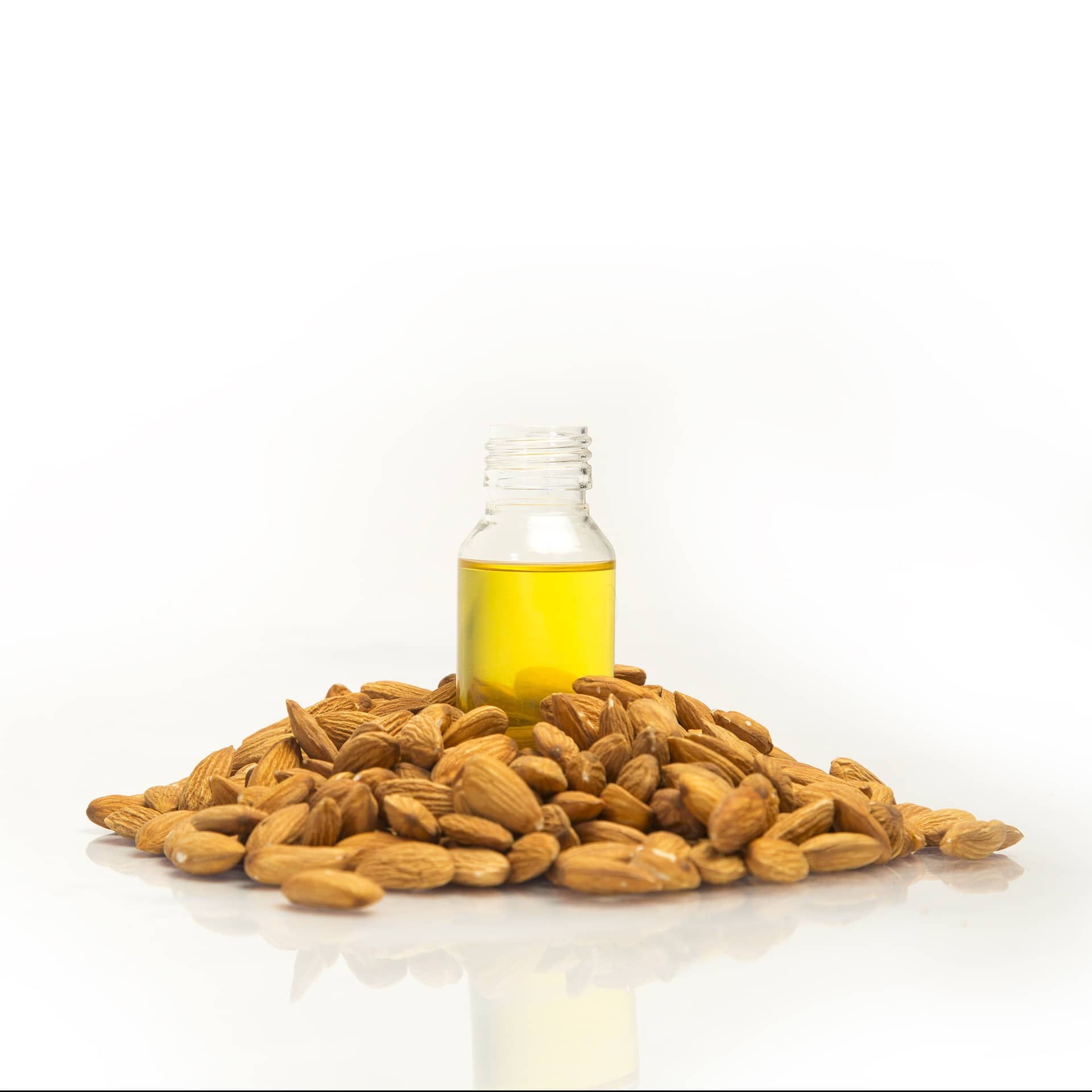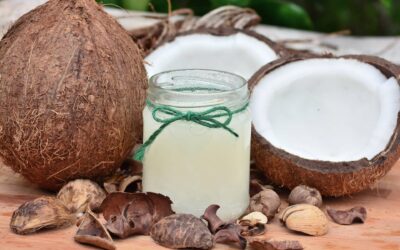Almond Oils: Who Else Wants To Switch To Almond Oils?
As many are becoming conscious of healthy alternatives, Almond oil, has slowly been gaining ground as the people’s choice of healthy oils. The oil obtained from the Almond nuts has been used for centuries either as cosmetic or as a medicine. Just to mention a few of its applications, the oil is widely used to relax the muscles, as a moisturizer and cleanser.
Almonds which goes by the scientific name as Prunus amygdalis var. dulcis and popularly referred to as the “sweet almond” is known to be one of the oldest nut crops with origination from South East Asia and the Middle East, and widely grown in other regions like California, Southern regions of Australia and Europe, not leaving out some parts of Africa.
With the outstanding benefits of Almond nuts, associated with the presence of highly bioactive compounds and fatty acids, society has been able to incorporate Almonds in almost every form that supports our eating habits. Almond is known to be one of the most popular tree nuts being consumed today and available in forms like milk, butter, flour, and proteins.
As we stand to enlighten people on the best and healthy products out there, we will focus on almond oils, the production process, best production practices, some industry insight, and how to source the best quality Almond oils.
What Are Almond Oils?
Almond oil is obtained from the dried and ripe seed kernel of various species of the Prunus. The Almond kernel has been used for centuries as food as it is oil-rich and high in calorie content.
The Almond kernel is known to contain as much as 50% oil when chemically extracted and about 35% when physically expressed (1).
Almonds are a nutrient-dense food that makes almond oil an excellent source of Vitamins, manganese, Phosphorus, and copper (2).
With Almond oils, only 8% of the fatty acids present in Almond oil are saturated fats and high in monounsaturated fats with beneficial effects such as lowering the risk of cardiovascular diseases.
The major fatty acid present in Almond oil is Oleic acid which represents over 69% of the total fatty acid content. Notwithstanding, other minor components of the almond oil may include Squalene, tocopherols, and sterols.
Almond oil is widely used as edible oil and usually as a salad dressing and complementary vegetable dips. Also, the oil is widely used in the production of cosmetic products be it rinse-off or leave-on, with great compatibility with all cosmetic ingredients.
Types of Almond Oils
Almonds can be categorized into two categories bitter almonds (Prunus amygdalus) and sweet almonds (Amygdalus communis).
The bitter almond oil is limited to external use and comprises of three basic components, amygdalin, benzaldehyde, and hydrogen cyanide. These substances are toxic and it is not advisable to consume or use internally.
The oil obtained from the bitter almond has a strong smell and mostly used for aromatherapy purposes. However, the bitterness and toxicity of bitter almond oils make the oil suitable to be added in medicines. Even though the oil can’t be termed as nutritional, it still possesses a variety of medicinal properties. The oil actually contains medicinal properties like vermicidal, anesthetic, bactericidal, diuretic, and anti-carcinogenic compounds.
On the other hand, the sweet almond oil is obtained from the edible almonds we eat every day. These sweet almonds are popularly consumed with other food items and also used in the production of other products like the almond milk, butter, and flour.
The sweet almond is very good for our general wellbeing as they are highly nutritional. The sweet almond is widely used in cosmetic products as they are good for the skin and hair. They are used in cosmetic products because they are known to prevent symptoms of early signs of aging (3).
With the sweet almond oil, it is packed with vitamins E and K, also omega-6 fatty acids which explains why the oil is widely used in cosmetic products for skin regeneration and maintains elasticity. The oil also consists of mostly triglycerides of oleic and linoleic acids.
The production of Almond oil
The same way other vegetable oils are being extracted is exactly the same way almond oils are produced. With the extraction process, the almonds need processing either with chemicals and heat or mechanically. It is very important to note that the production process or extraction process of vegetable oils greatly affects the quality of the end product.
The difference in the production or extraction methods can leave us with different quality of the oil. The oil can be a superior or inferior batch in terms of the quality of the oil which is what the market characterizes or grades as virgin, organic, or refined almond oil. As mention earlier, to obtain any of the said quality of the oil, the oil can either be produced through a solvent extraction or a cold-pressed system.
From the various designated grades and with our mission to only export the best products to the world, we work mostly with organic and virgin almond oils. These are the best and top-quality grades of the oil.
To briefly describe the process and why these oils are considered superior, we will have to look into the best production practices;
Organic Almond Oil
This is the purest form of almond oil and without any form of modification to the oil. In other to grade almond oil as organic, no genetically modified substances or organism must be used in the production process of the oil. As a matter of fact, the almond plant must be organically cultivated without the use of chemicals and artificial fertilizers. This explains why health enthusiasts will only want to go for organic natural products produced without the use of additives and other unwanted chemicals.
The oil is usually obtained through the cold pressing production method and without the use of little or no heat. This production process helps to maintain the nutrients in the oil which gives rise to a superior quality oil.
Normally, after the production process, a third-party laboratory is used to test the oil and to validate the producer’s claim of producing organic almond oil. These validations will always be indicated on the labels of the oil.
Virgin and Extra Virgin Almond oil
The virgin or extra virgin grade of almond oil is produced through the cold pressing method as well without the use of artificial chemicals and excessive heat. This explains why the oil is referred to as “virgin.” The terms “virgin” or “extra virgin” simply represent the grade designation of the oil as per the industry standard.
The extra virgin almond oil is the highest grade and subjected to meet numerous chemical parameters and sensory standards. For the almond oil to be labeled as virgin or extra virgin, the entire production process must be documented from extraction to packaging which validates the absence of additives and artificial chemicals.
Refined Almond Oil
Refined almond oil can be obtained through solvent extraction process which permits the use of chemicals and under high temperatures. Refined almond oil can also be obtained through the pressing method and goes through a purification process.
With the purification process, the oil goes through distillation or filtration. It is important to note that oil produced through the purification process loses its scent and natural flavor.
The advantage with the solvent extraction method is the high yields obtained during the process which explains the price difference in the market. However, this process reduces the quality of the oil compared to the cold pressing method.
Health Benefits of the Almond Oil
As we stand to take the best products to the world, we would like to share some benefits of the almond oil for our everyday use and to encourage the users of Almond oil to know more about the product they consume;
Sweet Almond Oil
The oil is known to be high in mono and polyunsaturated fatty acids, glycosides, and other minerals. These fatty acids work alongside with glycerol to enable our cells to function normally.
Sweet almond oil packed with vitamins like vitamin A, E, D, B1, B2, and B6. With these vitamins, the oil is known to have antioxidant capabilities. One of the benefits of antioxidants is their ability to protect vital cell structures by neutralizing free radicals.
Also, vitamin E is known to possess a wide variety of skin benefits. Vitamin E is known to fight against skin cancer and other skin conditions like psoriasis, erythema, and many more. Many scar remedies now “incorporate” the use of almond oil which is also used for the reduction of stretch marks on the skin (4).
Almond oil is known to contain about 30% Linoleic Acid which is an omega 6 essential fatty acid responsible to reduce the loss of water on the outermost layer of the skin. This helps to retain moisture which may help to ensure a healthy skin.
With the presence of omega-3 fatty acids in almond oil, one might maintain a healthy cholesterol level and improve memory (5). Also, it may be beneficial in lowering the risk of heart diseases and cancer. With the presence of high unsaturated fat and vitamin E, the oil may help oxygen and the nutrients circulate through the blood which also nourishes the heart.
Almond oil does not only reduce the total cholesterol levels and LDL cholesterol. The oil is known to raise the High-Density Lipoproteins (HDL) which is also known as good cholesterol.
Sweet almond oil is known to contain a superior compound known as Beta-sitosterol, a phytosterol that may help to boost immunity. This explains why almond oil is good for people who are recovering from illness or who are medically unwell and physically stressed.
The presence of Beta-sitosterol may help to relieve inflammation, limits cramps, and fight against ulcers. The compound is also known to act as an anti-fungal, anti-bacterial, and anti-viral agent.
Some external application benefits of the almond oil can be experienced as the oil is known to have high nourishing properties with significant moisture retention, not leaving out its deep penetration abilities. With these application characteristics, the oil can be applied easily and naturally designed to blend with all kinds of cosmetic products.
Benefits of bitter Almonds
Bitter almonds are normally obtained from a different type of Almond tree known as the Prunus amygdalus var.amara and contain toxic chemicals which explains why the oil is restricted for external use only.
In certain processes, and with serious safety concerns, some producers of almond oil use the center (kernel) of the bitter almond to make medicine for ailments like spasms, itchiness, pain, and cough.
Bitter almond is known to have a nutty fragrance and widely used for its flavor, scent and for its endless therapeutic value.
Just as sweet almonds, the oil obtained from the bitter almond can be used topically on the skin and hair. Bitter almond is rich in oleic acid and the omega-9 fatty acid which gives the oil its potent moisturizing abilities.
The oil can be easily absorbed in the skin which makes it possible for the oil to penetrate and nourishes the skin. The oil is also known to be rich in Vitamin E, which makes it possible for the oil to stand against free radicals and reverse signs of ageing like fine lines and wrinkles.
Bitter almonds are known to possess antibacterial and antimicrobial properties. With such characteristics, the oil can easily fight against acne and also a valuable agent in treating wounds, and cuts. The oil is widely used to eliminate scars, stretch marks, and dark spots. Also, it can help lighten and brighten the skin.
A healthy scalp can also be guaranteed with the use of the bitter almond oil. The oil can help in the maintenance of a healthy scalp and re-enforce hair follicles. Most importantly, the oil can help fight against hair loss and conditions like dandruff and associated dryness of the scalp.
Using bitter almond oil on the hair will help regain the strength, resilience, and lustre while also preventing unwanted hair loss.
What is the Difference between bitter almond oil and sweet almond oil?
Despite the fact that one is bitter and the other is sweet, the almond nuts are obtained from two different kinds of plants. Bitter almond is obtained from the plant name Prunus amygdalus var.amara (the pink flowering plant) whereas sweet almond is obtained from the Prunus amygdalus var.dulcis (the white flowering plant). With this in mind, both nuts are harvested from two different plants.
Bitter almond oil is widely considered as an essential oil highly potent and contains toxic chemicals which makes the oil likely unsafe when consumed by mouth. The oil is known to contain a harmful chemical called hydrocyanic acid (HCN) which explains why the usage of bitter almonds is strictly for external use.
Sweet almond oil is considered a carrier oil or based oil which makes it possible for the oil to easily blend with other oils including essential oils. Carrier oils are widely used to reduce the potency of certain oils and used as a “Trojan horse” that helps to penetrate certain oils to the skin.
For skincare use, sweet almond oil is considered a powerful lubricant which is effectively used for dry skin. It is widely used today in massage parlors as the oil can easily be absorbed in the skin. The oil can easily nourish and revitalize the skin.
Bitter almond oil can be considered as an essential oil. It can’t be used directly on the skin as it is very potent and needs to be diluted with a carrier oil.
The difference between sweet and bitter almonds can also be identified from the shape of the nuts. Bitter almonds are slightly broader and shorter when compared to sweet almond oils. They also contain only about 50% of the base oil found in the sweet almonds.
For the usage of the oil, sweet almond oil is considered one of the best oil for hair and skin due to its richness in protein, vitamins, and minerals. This makes it possible for sweet almond oil to be considered nutritional and used even internally.
Bitter almond oil can’t be considered nutritional and can be toxic. It has no aromatherapy benefits and simply exists as a fragrance essential oil.
Market Overview of Almond Oil
The almond oil market as of 2019 was estimated at $1.7 billion and growing at a compound annual growth rate of about 13.2% for a forecast time period 2020-2025. With a compound annual growth rate indicated, a projected market value of over $2.6 billion is estimated by the year 2023.
The rapid growth of the almond oil market can be attributed to the increasing demand for Almond oil for aromatherapy products, the recent rise of the use of almond oil in the pharmaceutical industry, and customer’s preferences with a shift towards the use of products containing simply natural ingredients.
Another key factor responsible for the growth of the almond oil industry is the support from most governments encouraging the use of organic and natural ways of the production of cosmetic products. Coupled with the governmental support is the wide acceptance of almond oil for the alleviation of skin conditions like eczema and pimples.
Almond Oil Market by Product (Sweet and bitter almond oil)
Looking at the market interest in the two types of almond oil (bitter and sweet almond oil), it is clear the sweet almond oil is the most demanding and is known to be the fastest-growing product segment for almond oils. It is estimated that from 2019 to 2025, sweet almond oil shows a potential compound annual growth rate of 14.3%.
The sweet almond oil shows promising market growth which is driven by the potential the oil brings, as an exceptional lubricant, rich in vitamins and other minerals packed with nutritional and other health values provides a rewarding opportunity for its application in the personal care, cosmetics, and pharmaceutical industries.
This further explains why sweet almond oil is widely used in the cosmetic industry to treat sensitive skin issues which in a way contributes significantly to the segment growth.
For the bitter almonds, and the fact that the oil is known to contain toxic chemicals limits its potential in the market even though the oil can be refined to eliminate the toxic chemicals before usage. The bitter almond oil holds a global market share of 32.8% as of 2018.
In supporting the market growth, bitter almond oil can be used to remedy pain and spasms, limit fungal growth, also used for skin conditions as its usage is mostly limited externally.
Application
The personal care and cosmetic industry is the fastest and largest growing segment and exhibiting a compound annual growth rate of about 12.3% as forecasted for the time period of 2019 to 2025. The characteristics and compounds found in almond oil enhance its application in formulating cosmetic products.
Besides, there is a growing need for the use of natural and organic ingredients in the production of cosmetic products. Governments around the world are now prohibiting the use of harmful chemicals in the production of Cosmetics. This can be seen with the European commission prohibiting five types of parabens found in cosmetic products which are isopropyl paraben, isobutyl paraben, phenylparaben, benzyl paraben, and pentylparaben.
The food and pharmaceutical industries are also adapting almond oil in the production of food and medicine in a bid to take advantage of the nutritional and health benefits of almond oil.
Market Insights by Geographical Location
In the year 2019, Europe was known to hold a major 33.9% market share of the global almond oil market in terms of Demand. As of now, Europe still stands to control a major market share of the almond oil both for export and import. Almonds are gaining popularity in the European market including countries like France, Germany, and UK, partly because of their gluten-free recommendations and requirements.
With current developments in the Almond oil market, Asia Pacific is exhibiting the highest compound annual growth rate of about 14% during the time period of 2017 to 2013. This fast growth can be attributed to the increasing health concerns of consumers in countries such as India and China.
Restrains for the Almond Oil Industry
The cost of acquiring the raw materials for the production of Almond oil has been steadily increasing with the rising popularity of Almond oils. This is known to be one of the major factors to hinder the market growth of the Almond oil Industry.
One of the reasons for the increase in the cost of production is the scarcity and seasonal dependent farming of the raw materials used in the production of almond oil. This also tends to result in a high initial investment cost in the Almond oil market.
With the rising cost, the price of almond oil has also been on an upward movement. The price of almond oil has witnessed a 4.4 % increase between the years 2007 to 2018 according to economic times. For the past three years, the annualized volatility of almond spot prices has seen a 13.23 %.
Another important key challenge in the almond oil industry is the high competition in the field. The recent popularity in Almond oils has brought about huge competition in the market. This high competition can be seen from well-established companies in the market.
Importing Almond oil
Importing almond oil can be a promising opportunity today as people are becoming exposed to healthy and organic choices for a much better experience and lifestyle. With this upward trend, we see a huge increase in the demand for almond oil.
When importing almond oil, it is very important to understand the differences and uses between sweet almond oil and the bitter almond oil. The first thing to consider is what the oil will be used for. With the usage of the oil, importers of almond oil can easily determine which of the almond oil can best suit their needs.
It is very important to ever indicate the purpose of why you are looking to buy almond oil from your supplier. This is important when you are purchasing the oil for the first time and from a new supplier. The reason for this is because; you don’t want to end up with bitter almond oil when rather you were looking to purchase sweet almond oil.
We strongly believe quality matters and as indicated earlier, the production process goes a long way to determine the quality of the oil. In some cases, to determine the quality of the oil, you can simply ask the supplier how the oil is produced.
Refined almond oil will go through a solvent extraction method and organic or virgin almond oil will be processed through a cold processing method. The cold-pressed production process normally will yield less quantity of the oil with a top-notch quality. This explains why we mostly work with organic cold-pressed almond oil as we stand to only take the best to the world.
As an importer, if you worry about the quality and since you might be importing from another country, we recommend you request a sample of the oil to test under your own terms and validate the quality claim of the supplier.
It’s always the supplier’s obligation to send you their specification for your reference and if they meet your standards. With a sample, you can make sure the oil is as stated as you run your own private test.
About the different standards of the oil and grades say; refined, organic, virgin, and extra virgin almond oils, Many suppliers usually use a 3rd party testing system or laboratory to validate the grade of the oil. Once a third-party organization checks the oil, they can issue a certificate to validate the quality claim of the supplier. At some levels, the third-party testing office or laboratory will approve the supplier to include their validation logo on the label of the oil.
It is also important to verify the reputation of such grading or third party laboratories. Some of the most reputable can be ISO, FDA and some few others.
Another important thing one must not neglect when importing oils or buying in bulk is to check on the packaging and packing. Suppliers can best determine how to securely preserve the oil during transit and to avoid any complications during delivery.
With a secured packing, one must still be concern about the shelf life of the oil and delivery time. Another variable to consider is the turn over. How long does it take for a complete sales circle and will your buyer have some time to use the oil for a long period of time?




